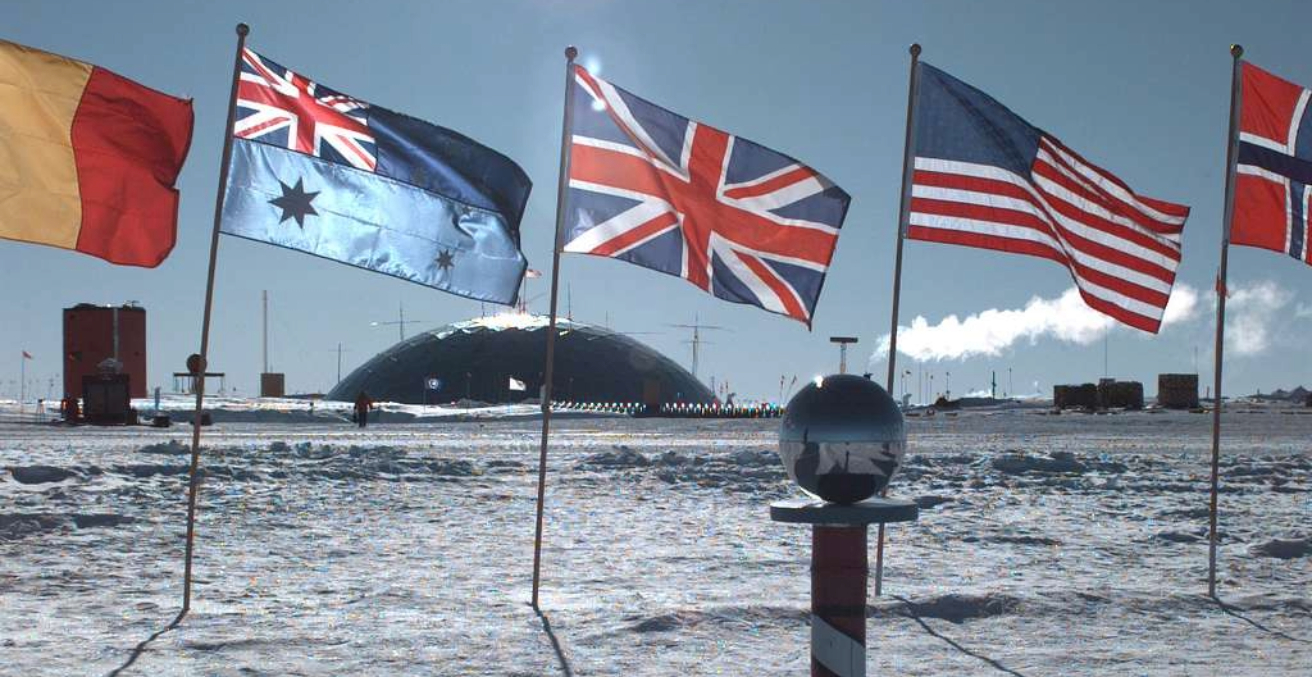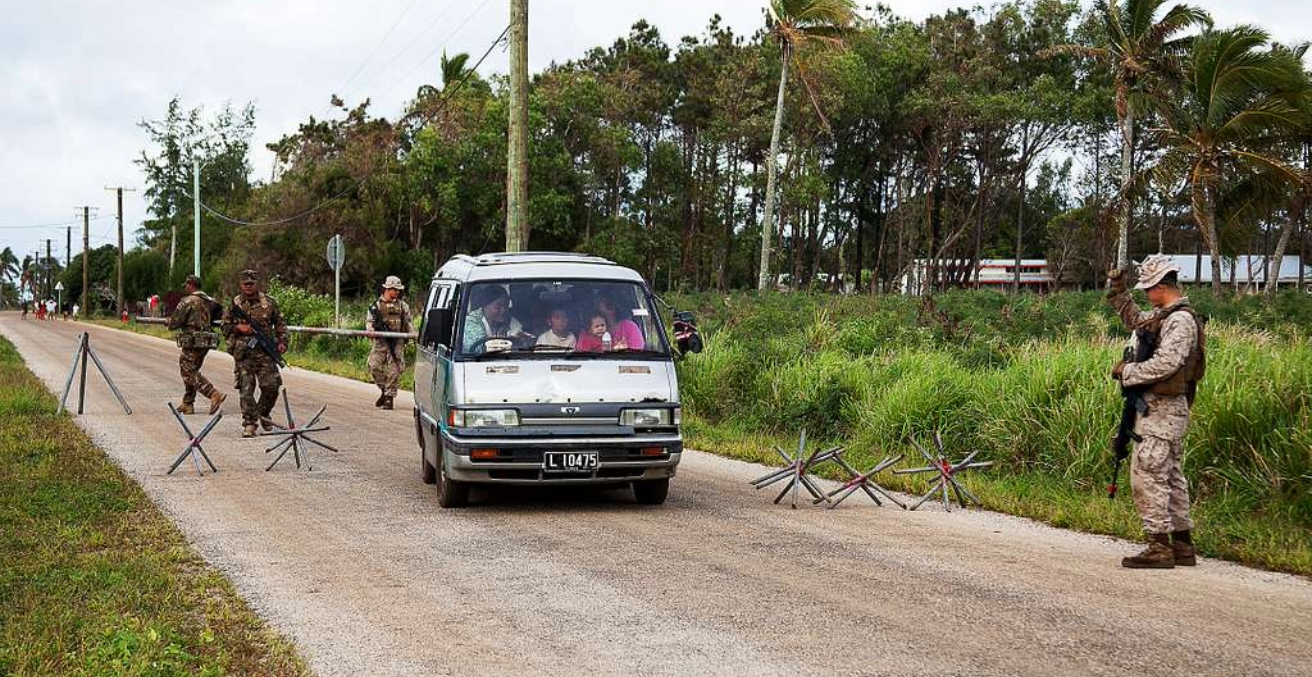The US and China have both been status quo powers. Neither of them now is. Australia should work as hard as it can to avoid a re-bipolarisation of the international environment.
This is an edited extract of Allan Gyngell’s speech to the 2018 AIIA National Conference on 15 October. For the full speech, click here.
For many years now, I’ve pointed out in speeches to students and young public servants that every Australian government since 1945 has at one time or another declared that the international situation Australia faces has never been more fluid and uncertain.
So you can understand how cautious I have been in coming to the conclusion that, this time, the claim in the 2017 Foreign Policy White Paper that our region is changing “in ways without precedent in Australia’s modern history” is right, and that we have to deal with a future more uncertain than any we have known since World War II.
These changes are the result of the shifting balance of global economic and military power. Their consequences are all around us: in new tensions between great powers and within old alliance systems; in the crumbling capacity of international organisations to make and enforce rules and norms.
But from Australia’s perspective, their sharpest manifestation lies in the changed approaches of the two countries of most importance to our future: our principal ally and old friend, the United States, and our major trading partner, China.
As President Trump has reminded us, American voters are no longer willing to bear the costs of supporting the international order that the United States itself established at the end of the Second World War. The current US Administration considers that the benefits it receives from providing global public goods are diminishing. A number of elements in the international status quo, such as the World Trade Organisation and some of its own alliance relationships, are no longer seen as delivering an adequate return on its investment. Future US governments will no doubt use different language from Donald Trump’s, but they will be similarly keen to emphasise ‘America First’.
The Chinese government, for its part, adhered to and benefitted from the international status quo during its 40-year period of economic reform. But a new Communist Party leader, Xi Jinping, has moved decisively away from Deng Xiaoping’s advice that China should hide its capabilities and bide its time. Again this was inevitable. China is looking for a role in the world to match its economic weight and its increasingly global interests.
Expectations from some in the West that as it grew China would become more like us have been disappointed. Under Xi Jinping, ideology and the role of the Communist Party in economic and social life have made a strong return. China’s own sense of its historical centrality is as important a component of its cultural mindset as the idea of America as an exceptional nation is to the US worldview.
The American and Chinese rejection of the status quo matters to Australia because if there was one country that did well out of the post-war order, it was us. The dangers of the Cold War were mostly far away and the costs borne by others. In the Asia-Pacific, US defence relationships, especially with Japan and South Korea, and open trading arrangements provided the stability within which the Asian economic miracle could occur and Australia could prosper.
That’s why successive Australian governments have been so determined to argue that we don’t have to choose between our history and geography, our main ally and principal trading partner, and our security and prosperity.
But the demand that we make such choices is getting louder.
A new bipolar divide is beginning to entrench itself around the Asia-Pacific. Established lines of connection in areas ranging from trade and technology to student and research exchanges are being tested.
We know from neuroscientists and evolutionary biologists the split-second speed with which the human brain differentiates between “us” and “them”, and the evolutionary advantages the quick identification of the “other” may have provided individuals. In the context of contemporary societies, however, “othering” is a powerful and dangerous social tool.
A sophisticated form of othering is taking place at the refined levels of international relations scholarship, based not on the cruder foundation of race or religion but on differences in values.
Values matter in foreign policy, of course. They inform our way of looking at the world and the way we act in it. But values, like interests, are messy and complex. They are shaped by philosophy, religion, history and biology. And they change over time.
It will, of course, always be easier for us to work with countries which share more of our values or our institutional history, but we are dealing with a spectrum, not a binary divide. And for Australia, located at the civilizational cross-roads of the Indo-Pacific, that spectrum is wide.
Among the countries of the region, only Australia and New Zealand measure up to the standard of full democracies, according to the Economist Intelligence Unit’s 2017 Democracy Index. All the others range between “flawed democracies”, a category that includes the US, Japan and India; “hybrid regimes” like Singapore, Fiji and Thailand; and authoritarian states like China, Vietnam and Myanmar.
The emerging international order isn’t going to look like the 20th century world, with its hub-and-spokes alliance systems and broad multilateral institutions with universal membership. No single power will be able to generate the energy needed to shape and sustain the new order alone. China can’t do so, nor can the US. A diverse and fluid network of relationships, groups and coalitions will be required to address the economic, security, environmental and social uncertainties ahead.
So what does Australia need to do to navigate our way through the dangerous terrain ahead?
The answer certainly does not lie in “othering” the second-largest economy in the world. It doesn’t lie in wishful assumptions that we can transform China. (You might have thought that a decade’s experience in the Middle East had taught us that lesson.) It does not lie in spurious historical metaphors, whether the Thucydides trap, or appeasement at Munich, or Churchill’s Iron Curtain.
I spent 10 years of my professional life working on the Cold War. This is not the Cold War. Whatever disagreements we may have with China about its claims in the South China Sea or its use of cyber or possible debt pressures on developing states, these are far removed in scale and danger from the permanent stand-off between the nuclear forces of the Warsaw Pact and NATO across the central German plains, or from the violent proxy wars fought by the two sides through Asia, Africa and Central America.
No Australian interests or values will be served by a re-bipolarisation of the international environment. We should work as hard as we can to avoid it.
This is instead a time for Australia to be focusing on the slow, patient work of foreign policy: that neglected part of statecraft whose very purpose is to find ways of managing differences in a complex world. It does this by seeking to understand the motivations and processes of the other actors in the international system, then by drawing on long traditions of reciprocity and deal-making, crafting the rules and norms necessary to build the international order.
With its compromises and trade-offs and grinding backroom negotiations, foreign policy has nothing like the romantic allure of grand strategy. But the outcome it seeks – a fair and peaceful world in which our security is protected, our prosperity expanded and our citizens able to live full and meaningful lives – could not be more heroic.
Allan Gyngell AO FAIIA is National President of the Australian Institute of International Affairs and an Honorary Professor at the ANU’s College of Asia and the Pacific.
This is an edited extract of his speech to the 2018 AIIA National Conference on 15 October. For the full speech, click here.
This article is published under a Creative Commons Licence and may be republished with attribution.




